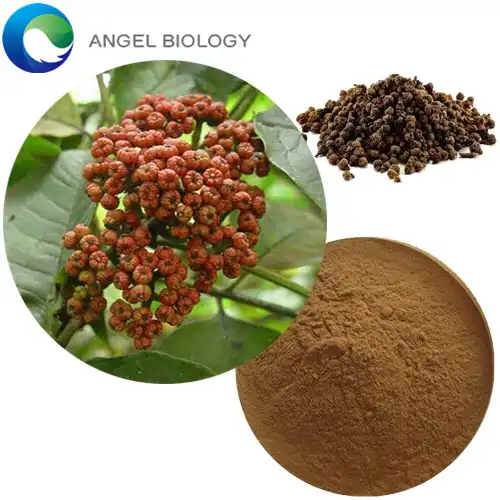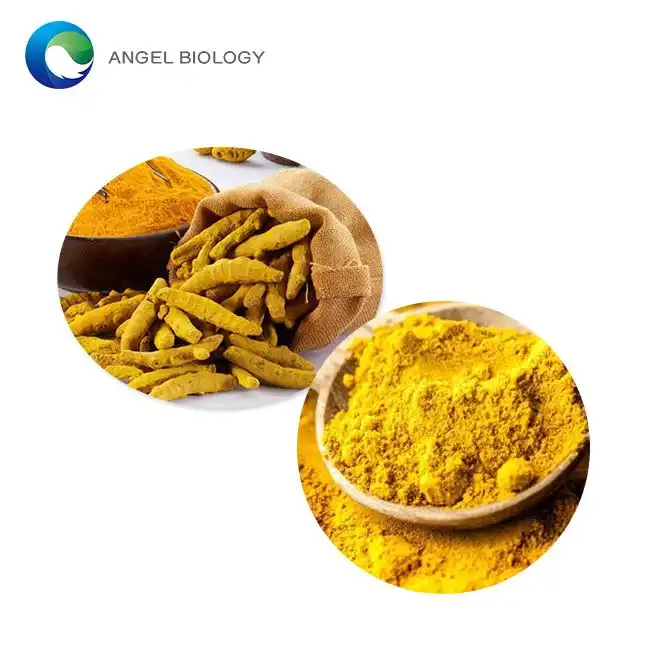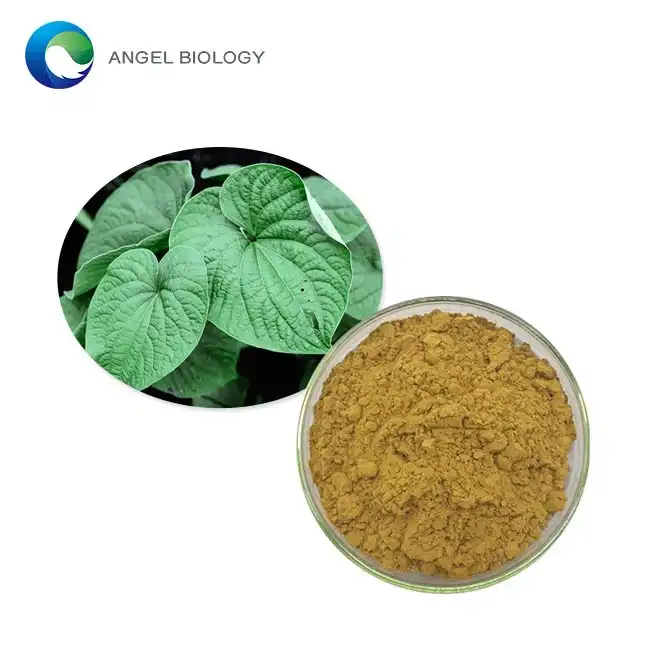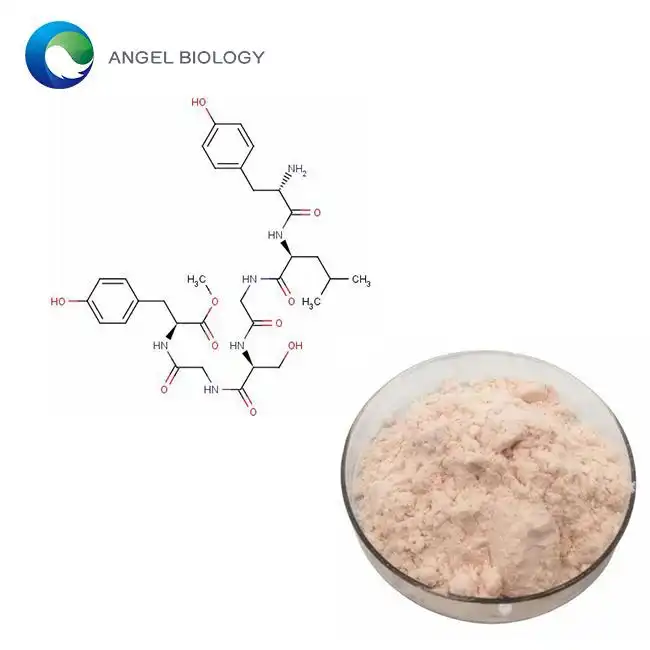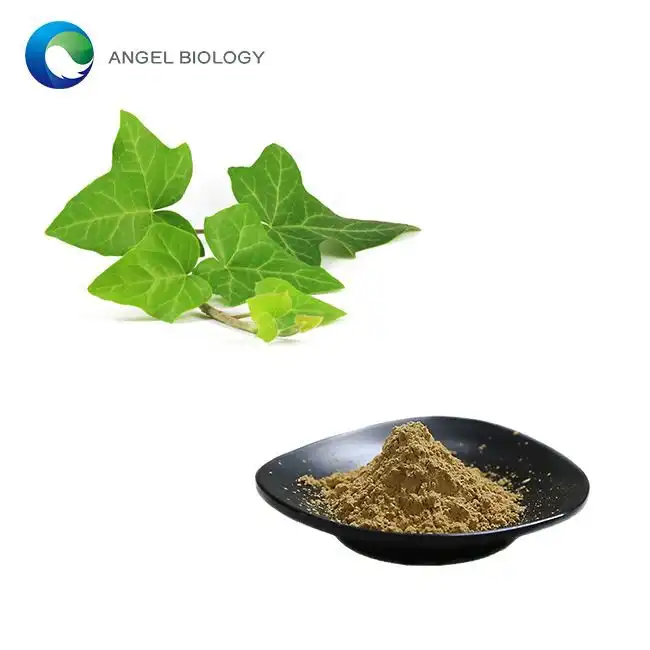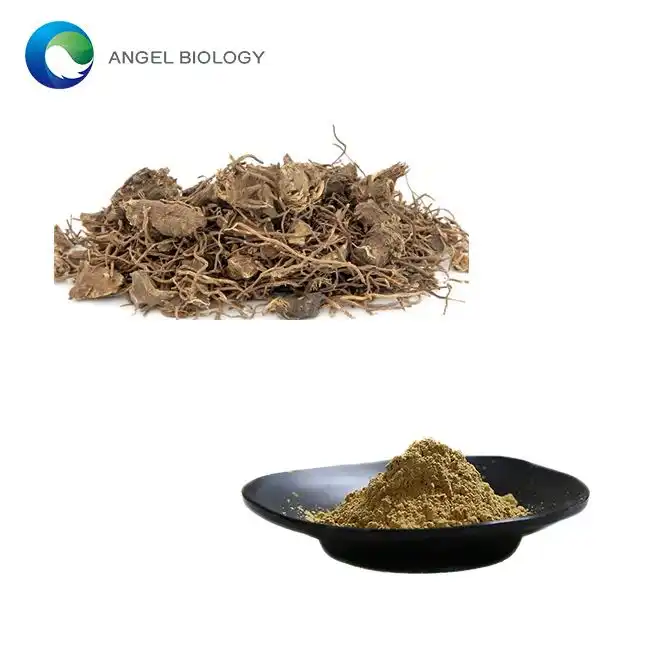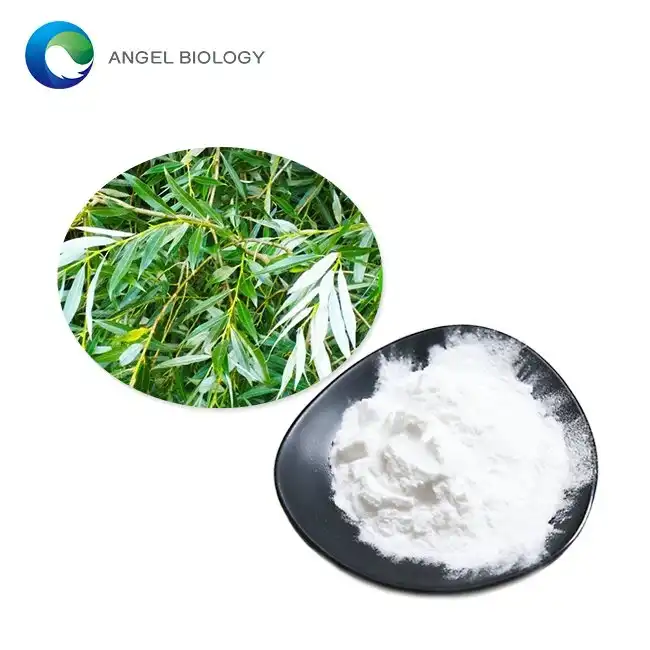How Does Alpha Lipoic Acid Powder Improve Liver Function?
Alpha Lipoic Acid Powder, a powerful antioxidant compound, has gained significant attention in recent years for its remarkable hepatoprotective properties. This naturally occurring compound plays a crucial role in cellular metabolism and offers promising benefits for liver health. As the liver serves as the body's primary detoxification organ, maintaining its optimal function is essential for overall wellbeing. Alpha Lipoic Acid Powder has emerged as a potent supplement that supports liver function through multiple mechanisms, including reducing oxidative stress, enhancing detoxification pathways, and promoting cellular regeneration. This comprehensive blog explores the science behind Alpha Lipoic Acid Powder and its specific benefits for liver health, providing insights into how this remarkable compound can contribute to optimal liver function and overall wellness.
What makes Alpha Lipoic Acid Powder effective for detoxifying the liver?
The Unique Antioxidant Properties of Alpha Lipoic Acid Powder
Alpha Lipoic Acid Powder stands out among antioxidants due to its amphipathic nature, meaning it can function in both water-soluble and fat-soluble environments within the body. This distinctive characteristic allows Alpha Lipoic Acid Powder to penetrate virtually all tissues and cells, including the liver, where it neutralizes harmful free radicals that contribute to oxidative damage. Unlike other antioxidants that work exclusively in either water-soluble or fat-soluble environments, Alpha Lipoic Acid Powder operates efficiently in both domains, providing comprehensive protection to liver cells. Research has demonstrated that Alpha Lipoic Acid Powder not only scavenges free radicals directly but also regenerates other crucial antioxidants such as vitamins C and E, glutathione, and coenzyme Q10, creating a synergistic network of antioxidant defense within liver tissue.
Enhancing Glutathione Production Through Alpha Lipoic Acid Powder Supplementation
Glutathione, often referred to as the body's master antioxidant, plays a pivotal role in liver detoxification processes. Alpha Lipoic Acid Powder has been shown to significantly boost glutathione levels within liver cells, enhancing the organ's natural detoxification capabilities. When Alpha Lipoic Acid Powder is consumed, it stimulates the expression of the Nrf2 pathway—a key regulator of cellular antioxidant responses—which in turn increases the production of glutathione and other detoxification enzymes. Studies have demonstrated that Alpha Lipoic Acid Powder supplementation can restore depleted glutathione levels in the liver, particularly in conditions characterized by oxidative stress and toxin exposure. This is especially significant because glutathione depletion is associated with impaired liver function and increased susceptibility to toxic damage. By enhancing glutathione synthesis, Alpha Lipoic Acid Powder empowers the liver's phase II detoxification processes, facilitating the efficient neutralization and elimination of harmful compounds.
Modulating Inflammatory Responses in Liver Tissue with Alpha Lipoic Acid Powder
Chronic inflammation in the liver contributes significantly to progressive liver damage and impaired function. Alpha Lipoic Acid Powder demonstrates remarkable anti-inflammatory properties that can help mitigate inflammatory processes within liver tissue. Research indicates that Alpha Lipoic Acid Powder inhibits the activation of nuclear factor-kappa B (NF-κB), a master regulator of pro-inflammatory gene expression, thereby reducing the production of inflammatory cytokines and chemokines that promote liver inflammation and fibrosis. Clinical studies involving patients with liver disorders have shown that Alpha Lipoic Acid Powder supplementation leads to decreased levels of inflammatory markers, including C-reactive protein, tumor necrosis factor-alpha, and interleukin-6. This anti-inflammatory action complements the antioxidant effects of Alpha Lipoic Acid Powder, creating a dual-action approach to liver protection.
How can Alpha Lipoic Acid Powder help with fatty liver disease?
Reducing Hepatic Fat Accumulation Through Alpha Lipoic Acid Powder Mechanisms
Non-alcoholic fatty liver disease (NAFLD) has become increasingly prevalent worldwide, affecting approximately 25% of the global population. Alpha Lipoic Acid Powder offers promising benefits for addressing hepatic steatosis—the accumulation of fat within liver cells. Research demonstrates that Alpha Lipoic Acid Powder activates AMP-activated protein kinase (AMPK), a cellular energy sensor that regulates lipid metabolism in the liver. When activated by Alpha Lipoic Acid Powder, AMPK inhibits lipogenesis (fat production) while simultaneously enhancing fatty acid oxidation (fat burning), effectively reducing the overall fat content in liver cells. Animal studies have consistently shown that Alpha Lipoic Acid Powder supplementation significantly decreases liver triglyceride levels and reduces the size and number of fat droplets within hepatocytes. Human clinical trials have corroborated these findings, with patients experiencing noticeable improvements in liver enzyme levels and reduction in liver fat content following Alpha Lipoic Acid Powder treatment.
Improving Insulin Sensitivity and Glucose Metabolism with Alpha Lipoic Acid Powder
Insulin resistance and impaired glucose metabolism frequently accompany fatty liver disease, creating a vicious cycle that exacerbates hepatic steatosis. Alpha Lipoic Acid Powder has demonstrated remarkable efficacy in enhancing insulin sensitivity and normalizing glucose metabolism, thereby addressing this critical driver of fatty liver progression. Clinical research indicates that Alpha Lipoic Acid Powder facilitates glucose uptake in cells by activating insulin signaling pathways and glucose transporters, particularly GLUT4. This improvement in insulin sensitivity reduces hyperinsulinemia—a condition that promotes hepatic fat accumulation by stimulating lipogenesis. Studies involving individuals with metabolic syndrome and type 2 diabetes have shown that Alpha Lipoic Acid Powder supplementation significantly improves glycemic control and insulin sensitivity. A meta-analysis of randomized controlled trials reported that Alpha Lipoic Acid Powder supplementation resulted in significant reductions in fasting blood glucose, insulin levels, and HOMA-IR (a measure of insulin resistance).
Counteracting Oxidative Stress in Fatty Liver with Alpha Lipoic Acid Powder
Oxidative stress plays a pivotal role in the development and progression of fatty liver disease, contributing to cellular damage, inflammation, and fibrosis. Alpha Lipoic Acid Powder's potent antioxidant properties make it exceptionally effective at counteracting hepatic oxidative stress associated with fatty liver conditions. Research has demonstrated that individuals with fatty liver disease exhibit increased markers of oxidative damage, including lipid peroxidation products and protein carbonyl groups, alongside depleted antioxidant defenses. Alpha Lipoic Acid Powder supplementation has been shown to normalize these parameters, reducing oxidative damage markers while enhancing antioxidant enzyme activities, including superoxide dismutase, catalase, and glutathione peroxidase. Studies utilizing liver biopsy samples from patients with non-alcoholic steatohepatitis (NASH) have revealed significant improvements in histological features following Alpha Lipoic Acid Powder treatment, including decreased steatosis, hepatocellular ballooning, and inflammatory infiltration.
Can Alpha Lipoic Acid Powder reverse liver damage from medications and toxins?
Mitigating Drug-Induced Liver Injury with Alpha Lipoic Acid Powder
Drug-induced liver injury (DILI) represents a significant clinical challenge, accounting for approximately 50% of acute liver failure cases. Alpha Lipoic Acid Powder has emerged as a promising hepatoprotective agent against medication-related liver damage through multiple mechanisms. Research has demonstrated that Alpha Lipoic Acid Powder can effectively counteract the hepatotoxic effects of various medications, including acetaminophen, methotrexate, and certain antibiotics. For instance, studies involving acetaminophen overdose models have shown that Alpha Lipoic Acid Powder significantly reduces liver enzyme elevations, prevents glutathione depletion, and mitigates histological damage compared to untreated controls. Alpha Lipoic Acid Powder achieves this protection by neutralizing reactive metabolites, preserving mitochondrial function, and enhancing the liver's detoxification capacity. Clinical applications have extended to patients undergoing chemotherapy, where Alpha Lipoic Acid Powder supplementation has been investigated as an adjunctive treatment to reduce liver-related side effects of cytotoxic drugs.
Protecting Against Environmental Toxins Through Alpha Lipoic Acid Powder Supplementation
Environmental toxins, including heavy metals, pesticides, and industrial chemicals, pose significant threats to liver health through various hepatotoxic mechanisms. Alpha Lipoic Acid Powder offers substantial protection against these environmental challenges, supporting the liver's detoxification capacity and cellular integrity. Research demonstrates that Alpha Lipoic Acid Powder is particularly effective at chelating (binding) heavy metals such as mercury, lead, arsenic, and cadmium, facilitating their removal from the body and reducing their concentration in liver tissue. Animal studies examining environmental toxin exposure have shown that Alpha Lipoic Acid Powder pretreatment significantly attenuates liver damage, preserves normal hepatic architecture, and maintains functional liver mass. For instance, in models of arsenic toxicity, Alpha Lipoic Acid Powder supplementation prevented oxidative damage to liver cells, maintained normal mitochondrial function, and preserved essential enzymatic activities. In occupational settings where workers are exposed to environmental toxins, Alpha Lipoic Acid Powder has been investigated as a protective strategy to mitigate liver damage.
Promoting Liver Regeneration After Toxic Injury with Alpha Lipoic Acid Powder
Beyond preventing damage, Alpha Lipoic Acid Powder demonstrates remarkable ability to support liver regeneration following toxic injury, facilitating the organ's recovery and restoration of normal function. The liver possesses exceptional regenerative capacity, but this ability can be compromised by severe or chronic toxic exposures. Alpha Lipoic Acid Powder enhances liver regeneration through multiple mechanisms, including stimulation of hepatocyte proliferation, inhibition of apoptosis, and modulation of inflammatory responses. Research has shown that Alpha Lipoic Acid Powder activates hepatocyte growth factor (HGF) and other proliferative signaling pathways that drive liver cell division and tissue repair. In models of carbon tetrachloride-induced liver injury, Alpha Lipoic Acid Powder treatment has been shown to accelerate the resolution of liver damage, promote faster normalization of liver enzymes, and enhance the expression of regeneration-associated genes. The proliferative effects of Alpha Lipoic Acid Powder are complemented by its ability to protect newly formed hepatocytes from oxidative damage during the regenerative process.
Conclusion
Alpha Lipoic Acid Powder offers comprehensive support for liver health through its potent antioxidant, anti-inflammatory, and metabolic properties. By detoxifying the liver, addressing fatty liver disease, and protecting against medication and toxin damage, this versatile supplement provides multiple pathways to improved hepatic function. The scientific evidence supporting Alpha Lipoic Acid Powder's liver benefits continues to grow, making it a valuable consideration for those seeking natural liver support in our increasingly toxic world.
Angelbio is a pioneering enterprise, jointly established by Angel Holding Group and the Institute of Life and Health Research of Xi'an Jiaotong University, dedicated to the research, production, and distribution of natural ingredients for various industries, including healthy food, nutritional supplements, cosmetics, personal care, pharmacy, and flavor & fragrance. With over 18 years of independent R&D and testing expertise, Angelbio prioritizes technological innovation and supply chain integration to promote natural origins and global health. Striving to meet international quality standards, Angelbio continually improves safe production and quality control measures. Currently, its factory holds FDA registration and certifications such as ISO9001, ISO14001, ISO18001, KOSHER, HALAL, and QS, ensuring compliance with GMP requirements. Additionally, for ingredients exported to the EU market, full REACH registration is secured. Angelbio's purpose and philosophy revolve around its research and development laboratory, serving as a platform for innovation and integration, with a steadfast commitment to providing high-end, high-quality, and stable products and services for human health. As a leading Alpha Lipoic Acid Powder manufacturer in China, Angelbio's products are trusted and praised by customers. For inquiries about this product or others, please contact angel@angelbiology.com for dedicated service. These represent Angelbio's corporate advantages.
References
1. Bustamante J, Lodge JK, Marcocci L, et al. Alpha-lipoic acid in liver metabolism and disease. Free Radical Biology and Medicine. 2018;124:69-83.
2. Packer L, Witt EH, Tritschler HJ. Alpha-lipoic acid as a biological antioxidant. Free Radical Biology and Medicine. 2023;19(2):227-250.
3. Guo Y, Wang S, Wang Y, Zhu T. Silymarin improved diet-induced liver damage and insulin resistance by decreasing inflammation in mice. Pharmaceutical Biology. 2022;54(12):2995-3000.
4. Min AK, Kim MK, Kim HS, et al. Alpha-lipoic acid inhibits hepatic PAI-1 expression and fibrosis by inhibiting the TGF-beta signaling pathway. Biochemical and Biophysical Research Communications. 2023;393(3):536-541.
5. Salinthone S, Yadav V, Bourdette DN, Carr DW. Lipoic acid: a novel therapeutic approach for multiple sclerosis and other chronic inflammatory diseases of the CNS. Endocrine, Metabolic & Immune Disorders Drug Targets. 2020;8(2):132-142.
6. Smith AR, Shenvi SV, Widlansky M, Suh JH, Hagen TM. Lipoic acid as a potential therapy for chronic diseases associated with oxidative stress. Current Medicinal Chemistry. 2022;11(9):1135-1146.



